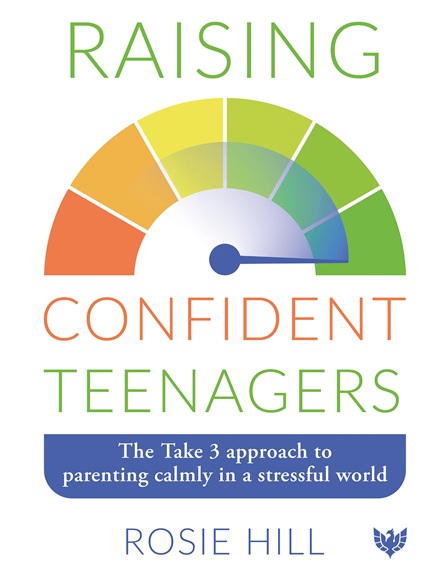Nurturing Natures: Attachment and Children's Emotional, Sociocultural and Brain Development

Book Details
- Publisher : Routledge
- Published : January 2024
- Cover : Paperback
- Pages : 474
- Category :
Child and Adolescent Studies - Category 2 :
Attachment Theory - Catalogue No : 97707
- ISBN 13 : 9781032436272
- ISBN 10 : 1032436271
Also by Graham Music
There are currently no reviews
Be the first to review
This new edition of the bestselling text, Nurturing Natures, provides an indispensable synthesis of the latest scientific knowledge about children’s emotional development. Integrating a wealth of both up-to-date and classical research from areas such as attachment theory, neuroscience, developmental psychology and cross-cultural studies, it weaves these into an accessible, enjoyable text that always keeps in mind children recognisable to academics, practitioners and parents.
New to this edition, the book considers transgender issues, same-sex parenting, experiences of black and minority ethnic groups, well-being and the impact of mental health in relation to climate change anxiety. It looks at key developmental stages from life in the womb to the preschool years and right up until adolescence, examining how children develop language, play and memory and moral capacities. Issues of nature and nurture are addressed and the effects of different kinds of early experiences are unpicked, creating a coherent and balanced view of the developing child in context.
Nurturing Natures is written by an experienced child therapist who has used a wide array of research from different disciplines to create a highly readable and scientifically trustworthy text. Equipped with key points, questions for consideration, further reading and online video chapter introductions, this book is essential reading for childcare students, teachers, social workers, health visitors, early years practitioners and those training or working in child counselling, psychiatry and mental health. Full of fascinating findings, it provides answers to many of the questions people really want to ask about the human journey from conception into adulthood.
Reviews and Endorsements
Nurturing Natures was an instant classic, and this greatly enhanced third edition will further consolidate and widen its reputation. Music is the David Attenborough of child development research. His balanced sifting of the literature and clinical expertise makes this an indispensable volume for all who work with children at all levels of training and practice.
Jeremy Holmes, MD FRCPsych, University of Exeter, UK
Graham Music is one of the foremost experts in the integration of social-emotional development, neuroscience and their applications. This book is an absolute gem, and its updated third edition does not disappoint in terms of in-depth reliable science as well as outstanding reading enjoyment.
Peter Fonagy, Professor of Contemporary Psychoanalysis and Developmental Science, UCL, UK
A wise and balanced account of human development. In this up-to-date 3rd edition, Music accurately summarises complex issues with a light touch which makes it a delight to read.
Sue Gerhardt, author of Why Love Matters and Psychotherapist
Table of Contents
Acknowledgements
Introduction: The Blind Men and The Elephant
- Nature and Nurture
- Multiple Perspectives
- Un-Nurtured and Feral Children
- The Chapters
PART I - BEGINNINGS OF EMOTIONAL AND SOCIAL DEVELOPMENT
1. Life Begins: From Conception to Birth
- Observing The Unborn Baby
- Where Does Parental Influence Start? The Meeting of Biology and Psychology
- Lasting Effects, Social Effects
- Being Born
- Key Points
2. Born to Relate
- Immaturity
- Bonding: Humans Are Not Grey-Lag Geese
- Wired To Relate
- Infant Imitation and Contingency
- Attunement, Affect Regulation, and Marking
- Maternal Instinct Questioned: Abandonment and Infanticide
- Entrainment, Culture, and Becoming One of Us
- Key Points
3. Infant Coping Mechanisms, Mismatches, and Repairs in Relating
- It Takes Two to Tango: Blind Babies, Premature Babies, and Sensitive Babies
- Early Emotional Defences
- Mismatches and Dodges
- The Effect of Maternal Depression and Other Mental Health Problems
- Key Points
4. Empathy, Self, and Other Minds
- Early Precursors of Understanding Other Minds
- Developmental Leaps from Nine Months and Onwards
- Theory of Mind
- Mirror Neurons and Rizzolati’s Monkeys
- Exceptions: Neglected, Maltreated and Autistic Children
- Key Points
PART II - OVERARCHING BODIES OF IDEAS
5. Attachment
- Attachment Theory’s Second Phase: Ainsworth the Strange Situation Test, Crittenden’s Dynamic Maturational Model
- Attachment Inside Us
- Transmission of Attachment
- Attachment Theory and Culture
- Attachment and Disorders
- Key Points
6. Culture
- Some Differences
- Sociocentric and Egocentric, Dyads and Groups
- What Is Universal and Biologically Natural? Breastfeeding and Emotions
- Cultural Variations in Development
- Cultures Frame Our Thoughts and Very Physiology and Brains
- Key Points
7. Biology and The Brain
- Neuroplasticity
- Brain Areas
- Brains, Nervous Systems and Bodies
- Empathy, Maltreatment and Our Cerebral Hemispheres
- Hope Or Hopeless
8. Epigenetics, Evolution and How Nature Meets Nurture
- Epigenetics and Evolution
- Nurturing Nature in Action
- Orchids and Dandelions
- Sins of the Fathers and Lamarck
- How Our Genes Affect Others
- Gene Environment Interaction and Caution
- Key Points
PART III - DEVELOPMENTAL CAPACITIES AND STAGES
9. Language, Words, and Symbols
- Parentese and Infant-Directed Speech
- Culture and Language
- Intersubjectivity and Language Learning
- Language and Brains
- Language and Emotional Processing
- Language Ability and Social Advantage
- Key Points
10. Memories: Learning Who We Are and What to Expect
- The Brain as Predictor of The Future
- Memories of Events and Facts
- Episodic and Autobiographical Memory
- Trauma, Memories, and Forgetting
- Key Points
11. Play: Fun, Symbolising, Practising, and Mucking About
- Early Play
- Play In Other Species and Rough and Tumble
- Different Kinds of Play, Different Kinds of Learning
- Play As a Window Into The Psyche
- Play, Pretending, Symbolism, and Growing Minds
- Key Points
12. Issues of Gender
- Social Learning
- Different Cultures, Different Genders
- Biological Differences and Rare Conditions
- A Weaker Sex? Gender and The Impact of Early Experiences
- Venus and Mars: Language and Different Planets
- Preferred Cultures, Different Gender Preferences, and Beliefs
- Different Genders, Different Psychological Presentations
- Testosterone Again, and Other Hormones
- Key Points
PART IV - NOT JUST MOTHERS
13. Nonmaternal Care and Childcare
- Adoption Is Common in Some Societies
- Purchased Nonmaternal Childcare: Nurseries
- Nurseries, Nannies, Grannies, and Childminders
- Summary
14. Middle Childhood, Siblings, Peers and Group Life
- Middle Childhood
- Siblings and Earlier Interactions
- Switch Points: Parents Peers and Attachment
- Power of The Group
- Peers: Are They Most Important?
- Temperament
- Key Points
15. The Place of Fathers
- Biological Priming
- Children With a Father and a Mother
- Children With No Biological Father Present: Single Mothers, Lesbian Parents, and Step-Fathers
- Practical Lessons from Research on Fathers
- Key Points
16. Moving Towards Adulthood
- The Adolescent Brain
- Screens, The Connected World and Other Addictions
- Becoming Less Attached
- Sex and Romance
- Risks, Problems, and Resilience
- Key Points
PART V - CONSEQUENCES OF EARLY EXPERIENCES
17. Trauma, Neglect, and Their Effects
- Neglect
- Maltreatment, Trauma, and Abuse
- Long-Term Effects
- Disorganised Attachment
- Summary
18. Resilience and Good Feelings
- Positive Emotions and Health
- Optimism Is Natural In Children
- Resilience
- Ambivalence and Emotional Complexity
- Happiness: Eudaimonic and Hedonistic
- Resilience, Interventions and Proximal and Distal Impacts
- Summary
19. Moral Development, Antisocial and Prosocial Behaviour
- Early Moral Capacities
- Empathy, Kindness, Compassion
- Hot Aggression
- Cold Aggression
- Summary
20. Conclusions: Earlier Experience and Its Longer-Term Consequences
- Psychological Effects of Early Experiences
- Adverse Experiences and The Body
- Childhood Trauma and The Lack of Good Experiences
- What Change Is Possible?
- Conclusions
Glossary
References
About the Author(s)
Graham Music is a Consultant Child Psychotherapist and Associate Clinical Director at the Tavistock Clinic in London. His main clinical interests are in developing services in community settings such as schools, and in working with children who are Looked after or adopted, and the adults in their lives. He teaches on many courses and trainings in Britain, and abroad, is on the editorial board of the child psychotherapy journal and has published particularly on the interface of developmental research and therapeutic practice. He is also an adult psychotherapist working in private practice.
Customer Reviews
Our customers have not yet reviewed this title. Be the first add your own review for this title.
You may also like
Handbook of Positive Supervision for Supervisors, Facilitators, and Peer Groups
Fredrike Bannink
Price £27.99
The Healing Forest in Post-Crisis Work with Children: A Nature Therapy and...
Ronen Berger
Price £24.99
Womb Life: Wonders and Challenges of Pregnancy, the Foetus' Journey and Birth
Graham Music
Price £9.99
Raising Confident Teenagers: The Take 3 Approach to Parenting Calmly in a...
Rosie Hill
Price £17.09
save £1.90









